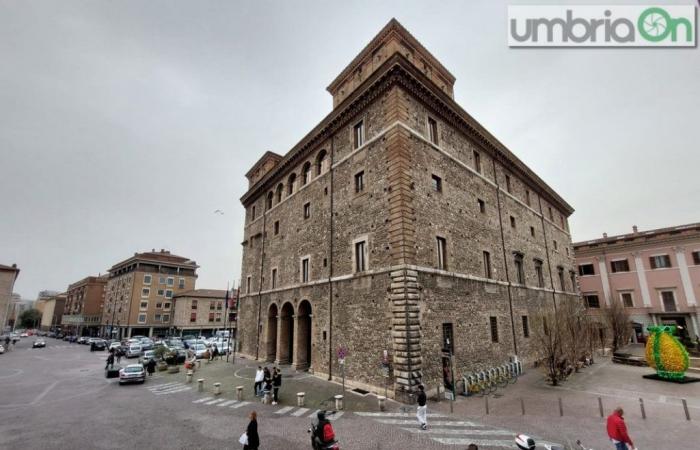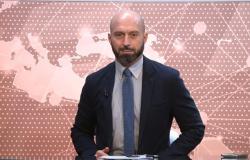Jun 29, 2024 4:26 PM
the SF
“In almost all programs, a lack of human resources and not economic resources is highlighted. There are discrepancies in the information on the progress of programs/projects. Political perception often diverges from management perception”. These are some of the most relevant passages reported in the conclusions of the 2024 strategic control of the Municipality of Terni, developed by the general management of Palazzo Spada: it is the first carried out concurrently with the current year with – the main consequence – the possibility of introducing corrective elements, then possibly absorbed in the single programming document 2025/2027.
THE COURT OF AUDITORS REprimands the Municipality for internal controls
Bandecchi with the general secretary Tommasini
The mayor Stefano Bandecchi, the general manager Claudio Carbone and the person in charge of the procedure Sebastiano Pasero signed it. It is the act useful for verifying the implementation of the political address acts with interviews with the councilors and questionnaires to the managers for the evaluation of everything that is being done: the first concomitant monitoring comes following the approval of the internal control program 2024 and above all the acknowledgement of the resolution of the Court of Auditors on the recent past. There was more than something to fix on this front.
THE APPROVAL OF THE PROGRAM POST RESOLUTION OF THE COURT OF AUDITORS
There are numerous general programs monitored (grow, collaborate, transform, experiment, amaze, move, accompany and respect, there is no attraction), with 18 programs and strategic objectives paid attention to. What catches the eye – not surprisingly highlighted in the conclusions – is that many responses state “insufficient, a further allocation of resources was requested, not granted” regarding the human resources available. For example, as regards urban redevelopment, it is specified that «a further allocation was requested for both personnel and financial resources, but was not granted. The political party agrees with the critical issues identified by the management and underlines the lack of public economic resources dedicated to the program by the legislation”. Among the problems highlighted – and this applies in general – there is also the “incorrect internal sharing of information”. To be resolved both by improving communication between the parties and “through strengthening the IT mapping of processes, so as to be able to draw up immediate reports through simple consultation of the management system”.
sparrow
Among the strengths is the innovation linked to the platform – digitalization of the process – as it has given an “effective contribution of transparency, respect for work times, more precise setting of strategic control with the exaltation of data collection and the reception of indicators, leaving less room for discretion to the self-assessments of managers or to the perception of the administration in the implementation or otherwise of its planning inputs”. A positive sign also for the positive role of the Pnrr funds: “The implementation of the Pnrr programs was seen as an absolute priority for the Authority and this led in about 50% of cases to an increase in the workload to the detriment of the ordinary activity of the directorates”. We return to the critical issues.
The strategic control highlighted that often «a timetable was not drawn up, thus effectively nullifying the planning on the one hand and the controls on the other. This lack is also attested by the fact that in some cases the state of progress of the program was not valorised. It is also possible to note that the management questionnaire evaluating the program often does not indicate improvement actions. This lack is also found in the interviews with the councilors.” Concrete example? Just scroll through the document and go to the operational objective ‘City of sport: creation of a mapping of the facilities and a strategic plan for the coordinated use of the facilities’. In this case the manager replies that the timetable is “not defined due to staff shortages”. The same goes for the objective ‘progressive reduction of the organisation’s indebtedness through the evolution, reduction and renegotiation of interest rates on mortgages contracted’: a timetable has not been drawn up “for the type of programme”. However, in various circumstances it was not respected, even for reasons external to the organisation.
Vista and Giorgini
There is no shortage of curiosity in reading the responses of the councilors. For example, for the level of collaboration and reception of the municipal structure: in most cases the response is ‘good’, then there are five ‘excellent’ (Altamura on collaboration agreements, Bordoni on Bct/cultural and laboratory activities and Aniello on the drafting of the municipal green plan, Altamura again for the table on disabilities and Bandecchi on the operation of the conference of mayors) and only one ‘poor’, not surprisingly: it is from the now ex-councilor Aniello for the identification of new solutions for the landfill disposal of steel waste. Reason? «Failure to implement, intervention not in line with the political-administrative program with heavy repercussions both in terms of time and polluting effects for the entire basin». A more than well-known story.
Carbon, Altamura and Corridore
On the management side (some did not give answers) there are those who have indicated the improvement actions hypothesized to improve the situation. On the second excerpt of the Verdi theater (Pnrr, Giorgini) there is the push for «greater coordination between the managements», on the strategic valorisation framework (Bedini) the input of «financial endowment or alternatively personnel, political priorities, increase in inter-directional collaboration”, the “improvement of the conditions of the structure (air conditioning, maintenance)” by Zaccone for what concerns the Bct”, “the increase in the necessary human, financial and IT resources” by Vista for the ‘ city of sport’, the «dedicating resources to training» for the implementation of table activities for disability policies (Accardo) and the «increase of human resources» for the strengthening of night checks in socialization areas (Sassi). On the subject of security, «difficulties emerged in the implementation of the program given the complexity of the matter, the need for inevitable collaboration with the state entities primarily responsible for security, as well as the criticality of the human resources available which inevitably do not allow in the current phase of implement the planned actions and which take away units from other activities of the local police force”.
Share this article on






